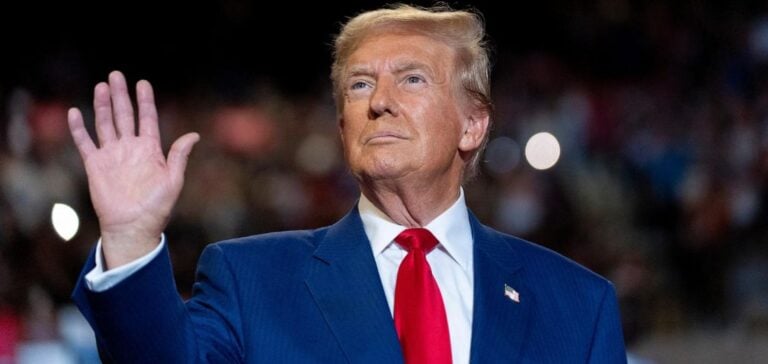Ontario Premier Doug Ford issued a strong warning in response to President-elect Donald Trump’s proposed tariff policies. According to Ford, his province might suspend all electricity exports to the United States if the 25% tariffs come into effect. This statement followed a strategic meeting between Canadian Prime Minister Justin Trudeau and provincial representatives.
Ontario, Canada’s largest province by population and economy, exports billions of kilowatt-hours of electricity to the U.S. annually, notably to Michigan, New York, and Minnesota. In 2023, these exports accounted for 12 billion kWh, enough to power approximately 1.5 million American households, according to Ford’s team. This energy dependence could become a significant bargaining chip for Canada.
A response to controversial measures
Trump’s proposed tariff measures align with his protectionist policies, citing crises such as immigration and the opioid epidemic. These tariffs, similar to those targeting steel and aluminum during his first term, could trigger a coordinated response from Canadian provinces. Deputy Prime Minister Chrystia Freeland reaffirmed Canada’s commitment to defending its interests against what she called “unjustified tariffs.”
During a press conference, Freeland emphasized that several provincial premiers called for a strong, unified response. This statement highlights provincial solidarity in the face of the threat, though Justin Trudeau’s cabinet has not yet clarified its stance on suspending electricity exports.
Economic and diplomatic stakes
The U.S., Canada’s largest trading partner, imports a significant portion of its energy from Canadian provinces, including Ontario. An export suspension could disrupt the lives of millions of Americans, particularly in border states like Michigan, which heavily relies on Canadian electricity to sustain its grid.
In response, the Trudeau government has taken steps to prepare a structured strategy. According to Canadian media, Ottawa plans to propose a border security plan worth over CAD 700 million to address U.S. concerns while safeguarding Canadian economic interests.
A historical precedent
During Trump’s first term, trade relations between the two countries were strained by tariffs on steel and aluminum imports. Ottawa retaliated by targeting specific U.S. products. These new tariff threats heighten fears of an economic escalation, testing bilateral relations between the neighboring countries.
As Donald Trump prepares to begin his second term, this trade dispute could redefine the terms of the energy partnership between the U.S. and Canada. Ontario’s decision to condition its electricity exports may set a precedent for political and economic negotiations.






















